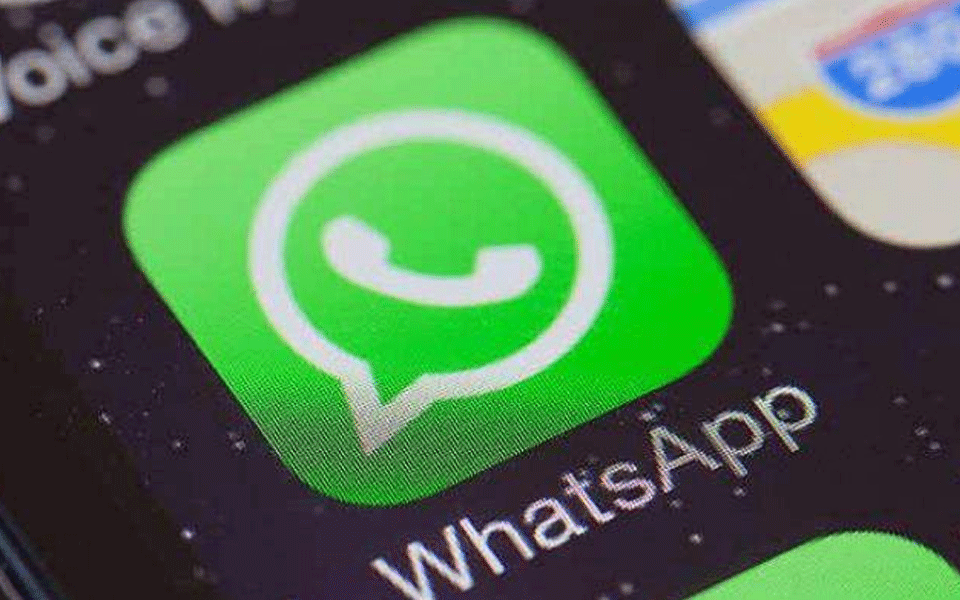New Delhi: WhatsApp on Friday said it is rolling out its payments services in India after receiving nod from the National Payments Corporation of India (NPCI).
In 2018, the Facebook-owned company had started testing its UPI-based payments service in India, which allows users to utilise the messaging platform to send and receive money. The testing was limited to about a million users as it waited for regulatory approvals to come in.
On Thursday, NPCI - which runs the Unified Payments Interface (UPI) used for real-time payments between peers or at merchants' end while making purchases - allowed WhatsApp to start its payments service in the country in a "graded" manner, starting with a maximum registered user base of 20 million in UPI.
"Starting today, people across India will be able to send money through WhatsApp. This secure payments experience makes transferring money just as easy as sending a message. People can safely send money to a family member or share the cost of goods from a distance without having to exchange cash in person or going to a local bank," WhatsApp said in a blogpost.
It added that the payments feature has been designed in partnership with NPCI using UPI, an India-first, real-time payment system that enables transactions with over 160 supported banks.
In June this year, WhatsApp had launched 'WhatsApp Pay' in Brazil - making it the first country where the service was widely rolled out.
In India, WhatsApp - which counts India as its biggest market with over 400 million users - will compete with players like Paytm, Google Pay, Walmart-owned PhonePe and Amazon Pay.
"Payments (service) on WhatsApp is now available for people on the latest version of the iPhone and Android app... We're excited to join India's campaign to increase the ease and use of digital payments, which is helping expand financial inclusion in India," it said adding that users will need to have a bank account and debit card in India to send money through the platform in India.
WhatsApp said it is working with five banks in India - ICICI Bank, HDFC Bank, Axis Bank, the State Bank of India, and Jio Payments Bank - and people can send money on WhatsApp to anyone using a UPI supported app.
"In the long run, we believe the combination of WhatsApp and UPI's unique architecture can help local organisations address some of the key challenges of our time, including increasing rural participation in the digital economy and delivering financial services to those who have never had access before," it added.
WhatsApp noted that its payments service is designed with a strong set of security and privacy principles, including entering a personal UPI PIN for each payment.
"There is no fee... because its WhatsApp, you know its secure and private too. With UPI, India has created something truly special and is opening up a world of opportunities for micro and small businesses that's the backbone of the Indian economy," Facebook CEO Mark Zuckerberg said in a video message.
He added that the payments service will be available in 10 Indian language versions of WhatsApp.
Interestingly, the approval for WhatsApp came on the same day as NPCI limited a single third party like WhatsApp or its rivals like Google Pay or Walmart's PhonePe to handle only 30 per cent of overall UPI transaction volumes by putting a cap. This is expected to allay fears of potential monopolisation.
Recently, PhonePe had announced crossing the 250 million registered user milestone and over 100 million monthly active users (MAU), and had 835 million UPI transactions in October with a market leading share of over 40 per cent.
Google had 67 million monthly active users in September last year, and on the merchant side, it had over three million active merchant's data for June 2020. Google Pay has not shared any updated stats since September 2019.
UPI processed over 2.07 billion transactions in October (worth Rs 3.86 lakh crore), up from over 1.8 billion in the previous month, as per data from NPCI.
Let the Truth be known. If you read VB and like VB, please be a VB Supporter and Help us deliver the Truth to one and all.
Kalaburagi: Four men have been arrested in Kalaburagi on charge of hacking a man with lethal weapons and pelting stones at him under the limits of Station Bazaar Police Station recently.
According to police sources, Anand Jalak Shinde (34), Ashitosh Jalak Shinde (30), Imran Mehboob Sheikh (28) and Sohaib Anwar Qureshi have been arrested. The men are accused of the brutal murder of Syed Mehboob, a resident of Station Bazaar Upper Line Hamalawadi in the city.
An FIR was filed by the Station Bazaar Police Station based on a complaint given by Syed Ismail, father of the deceased Syed Mehboob.
Following quick probe, the police team successfully arrested the suspects within 24 hours. The arrested men were produced in court and have been sent to judicial custody.
The City Police Commissionerate has appreciated in an official release the police team’s quick solving of the murder case and arrest of the four men accused of murdering Syed Mehboob.





